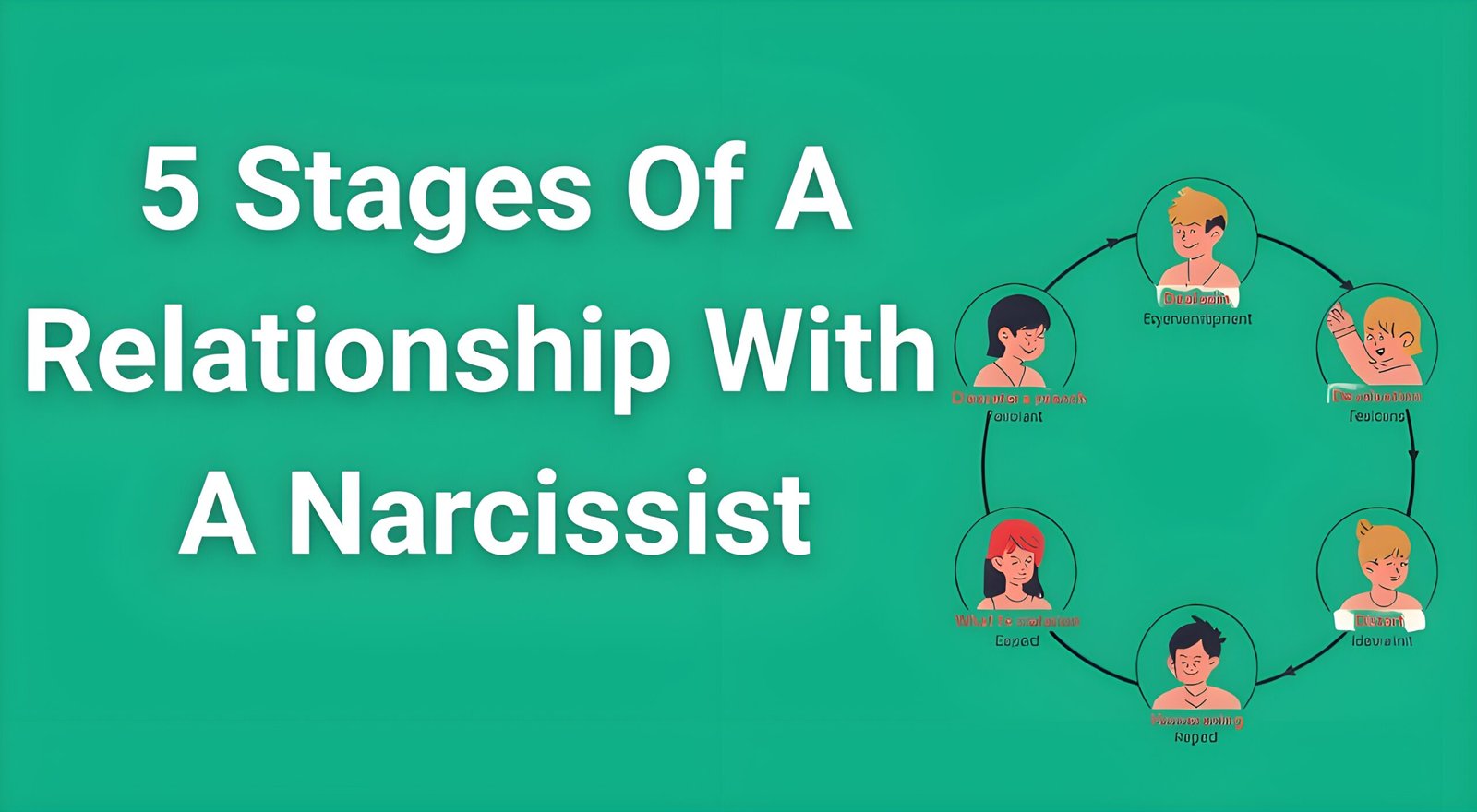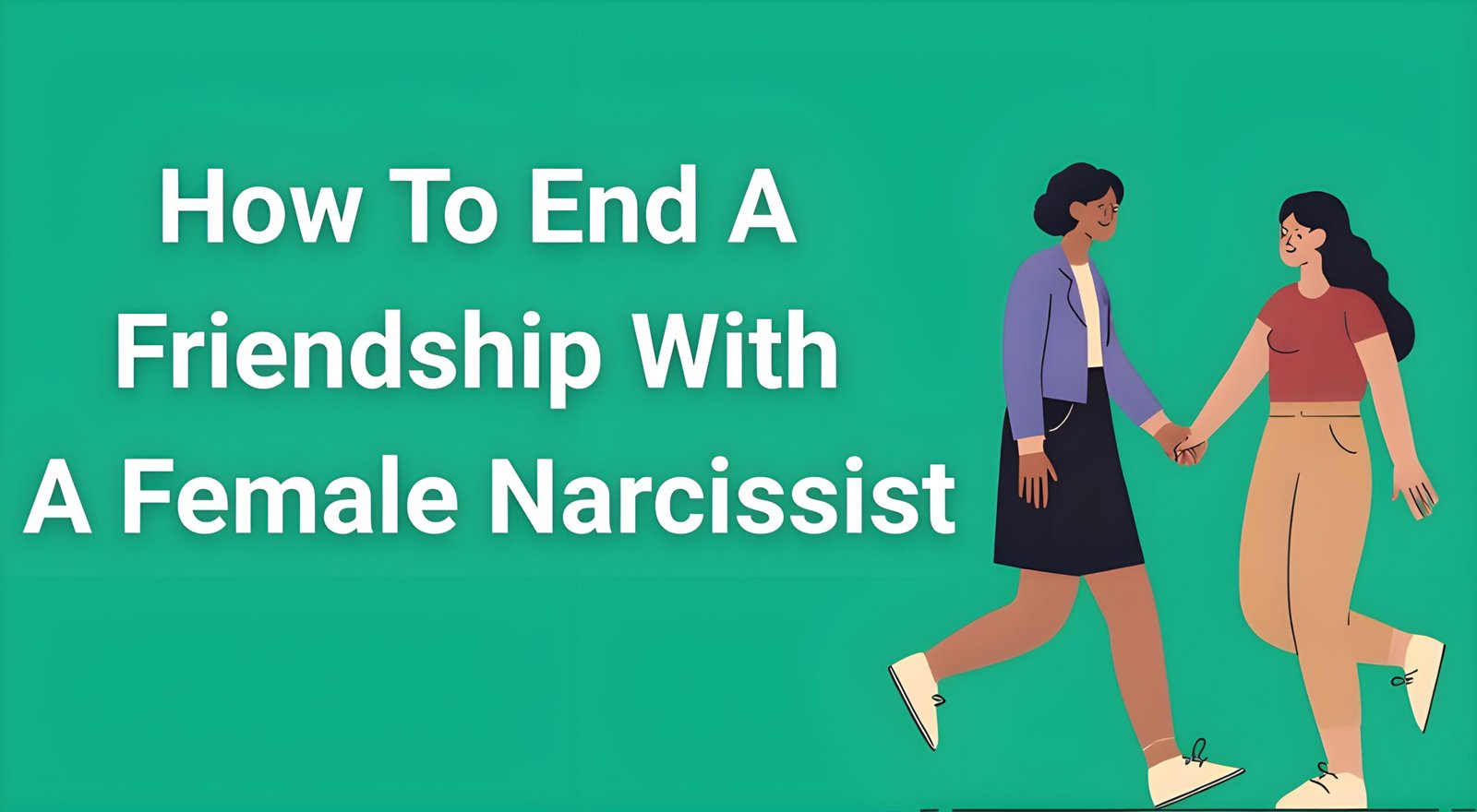That sick feeling in your stomach when you wake up isn’t anxiety – it’s your intuition screaming that something is deeply wrong with your relationship. If you’ve been questioning whether you’re dealing with a narcissist, understanding the 5 stages of a relationship with a narcissist can provide the clarity you desperately need.
- What Makes Narcissistic Relationships Different?
- Stage 1: The Idealization Phase (Love Bombing)
- Stage 2: The Devaluation Phase (The Mask Drops)
- Stage 3: The Discard Phase (Emotional Abandonment)
- Stage 4: The Hoovering Phase (The Vacuum Returns)
- Stage 5: The Repetition Cycle (The Never-Ending Loop)
- Why Understanding These Stages Matters
- Getting Help and Breaking Free
- The Long-Term Impact of Narcissistic Relationships
- Hope for Healing
- Moving Forward With Clarity
- Frequently Asked Questions
- Conclusion: Your Journey From Confusion to Clarity
These stages don’t follow a neat timeline. Instead, they create a psychological prison that keeps you trapped in cycles of hope and despair. By the end of this article, you’ll recognize exactly where you are in this toxic pattern and understand why leaving feels impossible.
What Makes Narcissistic Relationships Different?
Before diving into the stages, it’s crucial to understand that narcissistic relationships operate on a completely different set of rules than healthy partnerships. While normal relationships have their ups and downs, narcissistic relationships follow a calculated pattern designed to establish control and maintain power.
The person with narcissistic traits doesn’t see you as an equal partner. Instead, you become what psychologists call “narcissistic supply” – a source of attention, validation, and control that feeds their ego. This fundamental difference in how they view the relationship creates the toxic dynamics you’ll recognize in the five stages.
Research shows that people in narcissistic relationships often develop trauma symptoms similar to those seen in prisoners of war or cult survivors. This isn’t dramatic language – it’s the clinical reality of psychological manipulation and emotional abuse.
Stage 1: The Idealization Phase (Love Bombing)
The first stage of a relationship with a narcissist feels like a fairy tale. This phase, known as “love bombing,” is when the narcissist showers you with an overwhelming amount of attention, affection, and promises. They make you feel like you’ve finally found your soulmate.
What Love Bombing Looks Like
During this stage, the narcissist becomes completely focused on you. They may:
- Text you constantly throughout the day
- Shower you with expensive gifts and grand romantic gestures
- Tell you they love you within days or weeks
- Make future plans immediately (talking about moving in together, marriage, children)
- Mirror your interests, values, and dreams perfectly
- Isolate you from friends and family by demanding all your time
- Make you feel like the most special person in the world
The Psychology Behind Love Bombing
This isn’t genuine affection – it’s a carefully orchestrated manipulation technique. The narcissist studies you during this phase, learning your vulnerabilities, desires, and triggers. They’re essentially gathering intelligence to use against you later.
The intensity of love bombing serves several purposes:
- Creates trauma bonding through intermittent reinforcement
- Establishes dependency by becoming your primary source of validation
- Builds their ego through your obvious infatuation
- Sets the baseline for how amazing the relationship “could be”
Red Flags During Idealization
While it feels incredible, there are warning signs during love bombing:
- The pace feels unnaturally fast
- They seem “too good to be true”
- They have few close, long-term relationships
- They speak poorly of all their exes
- You feel overwhelmed by their intensity
- They discourage time with friends and family
- They seem to have no flaws or problems
Why You Don’t See the Red Flags
Your brain is flooded with dopamine and oxytocin during this phase, creating an actual chemical addiction to the narcissist. This neurological response makes it nearly impossible to think clearly or recognize manipulation tactics.
Stage 2: The Devaluation Phase (The Mask Drops)
Just when you’re completely hooked, everything changes. The devaluation phase begins gradually, so subtly that you might not even notice at first. The person who once worshipped you now seems indifferent or even hostile.
How Devaluation Begins
The shift usually starts with small incidents:
- They seem distracted or less interested in conversations
- Compliments become rare or backhanded
- They start pointing out your “flaws”
- Your opinions are dismissed or ignored
- They become moody and unpredictable
- Intimacy decreases significantly
Escalation of Devaluation
As this stage progresses, the abuse becomes more obvious:
- Gaslighting: They deny conversations, events, or promises you clearly remember
- Silent treatment: They punish you with emotional withdrawal
- Criticism: They nitpick everything you do, say, or wear
- Blame shifting: Everything becomes your fault
- Isolation: They sabotage your relationships with others
- Control: They monitor your activities, finances, or communications
The Psychological Impact
During devaluation, you experience:
- Constant confusion about reality
- Desperate attempts to “earn back” their love
- Self-blame and self-doubt
- Walking on eggshells constantly
- Loss of identity and self-worth
- Trauma bonding strengthens
Why You Stay During Devaluation
The intermittent reinforcement of occasional kindness creates a powerful psychological addiction. Your brain becomes wired to crave those rare moments of affection, similar to gambling addiction. You start believing that if you just try harder, you can get back to Stage 1.
Stage 3: The Discard Phase (Emotional Abandonment)
The discard phase is often the most devastating stage of a relationship with a narcissist. This is when they either physically leave the relationship or emotionally abandon you while staying physically present.
Types of Discard
Complete Discard: They suddenly end the relationship, often:
- Disappearing without explanation (ghosting)
- Moving in with someone else immediately
- Claiming they “never loved you”
- Rewriting history to make you the villain
Partial Discard: They remain in the relationship but:
- Become completely emotionally unavailable
- Start openly having affairs
- Treat you like a roommate or employee
- Show no interest in your emotional needs
The Smear Campaign
During discard, narcissists often launch a “smear campaign” to:
- Turn mutual friends against you
- Share your private information publicly
- Paint themselves as the victim
- Damage your reputation professionally or socially
- Use your children as weapons (in marriages)
Emotional Impact of Discard
Being discarded creates:
- Intense grief and loss
- Complete confusion about what happened
- Desperate attempts to win them back
- Self-blame and shame
- Suicidal thoughts or ideation
- Complex trauma symptoms
Why Discard Happens
Narcissists discard when:
- You’re no longer providing adequate narcissistic supply
- They’ve found a new source of validation
- You’re starting to see through their manipulation
- They’ve extracted what they needed from you
- The relationship no longer serves their image
Stage 4: The Hoovering Phase (The Vacuum Returns)
Named after the vacuum cleaner brand, “hoovering” is when the narcissist attempts to suck you back into the relationship. This stage can happen weeks, months, or even years after the discard.
Common Hoovering Tactics
- Crisis hoovering: They contact you during a personal crisis
- Anniversary hoovering: Reaching out on meaningful dates
- Breadcrumb hoovering: Liking social media posts or brief texts
- Indirect hoovering: Getting mutual friends to relay messages
- Emergency hoovering: Claiming family emergencies or health issues
- Romantic hoovering: Grand gestures reminiscent of love bombing
Why Hoovering Works
You’re vulnerable to hoovering because:
- Trauma bonding makes you crave their validation
- You still have hope they’ve changed
- You miss the idealization phase
- Unresolved grief makes you want closure
- Social isolation leaves you desperate for connection
The Purpose of Hoovering
Narcissists hoover to:
- Test if they still have control over you
- Get temporary narcissistic supply
- Prevent you from fully healing and moving on
- Maintain you as a backup option
- Feed their ego by proving their irresistibility
Recognizing Hoover Attempts
True hoovering always lacks:
- Genuine accountability for past behavior
- Specific details about how they’ll change
- Respect for your boundaries
- Interest in your healing process
- Willingness to seek professional help
Stage 5: The Repetition Cycle (The Never-Ending Loop)
The final stage isn’t really an ending – it’s the recognition that these four stages will repeat indefinitely if you don’t break free. Each cycle typically becomes more intense and damaging than the last.
How the Cycle Repeats
If you respond to hoovering, the cycle restarts:
- Brief idealization: They love bomb just enough to secure you
- Accelerated devaluation: The abuse starts faster and is more severe
- Quicker discard: They abandon you sooner in each cycle
- More manipulative hoovering: Their tactics become increasingly desperate
Why Each Cycle Gets Worse
- Your trauma bonding deepens with each round
- Your self-esteem erodes further each time
- Your support system weakens from repeated drama
- Your ability to recognize manipulation decreases
- Your tolerance for abuse increases
Breaking the Repetition Cycle
Ending this pattern requires:
- Education: Understanding narcissistic abuse tactics
- Support: Professional help and trusted relationships
- Boundaries: Complete no-contact when possible
- Healing: Trauma therapy and self-care practices
- Accountability: Recognizing your role in staying
The Reality of Change
Here’s the hardest truth: narcissists rarely change. While therapy can help some individuals with narcissistic traits, those with full Narcissistic Personality Disorder typically lack the self-awareness and empathy needed for genuine transformation.
Why Understanding These Stages Matters
Recognizing the 5 stages of a relationship with a narcissist serves several crucial purposes:
Validation of Your Experience
When you’ve been gaslit for months or years, understanding these patterns validates that your experiences were real. You’re not “too sensitive” or “crazy” – you survived psychological warfare.
Breaking Through Denial
Many people stay in narcissistic relationships because they don’t understand what’s happening to them. Knowledge of these stages can break through the fog of manipulation and help you see your situation clearly.
Preventing Future Relationships
Once you understand these patterns, you’re less likely to fall for love bombing in future relationships. You’ll recognize the red flags earlier and protect yourself.
Supporting Others
Understanding narcissistic relationship dynamics helps you support friends or family members who might be trapped in similar situations.
Getting Help and Breaking Free
If you recognize yourself in these stages, understand that breaking free from a narcissistic relationship requires more than willpower. The psychological bonds created through this cycle are real and powerful.
Professional Support Options
Consider seeking help through:
- Trauma-informed therapists who specialize in narcissistic abuse
- Support groups for abuse survivors
- Specialized programs designed for breaking trauma bonds
- Legal assistance if you share children or assets
Personal Analysis and Clarity
Sometimes the first step is gaining complete clarity about your specific situation. Professional analysis of your unique relationship dynamics can help you understand exactly what you’re dealing with and why certain patterns keep repeating.
Many survivors find that getting an expert perspective on their relationship helps them finally trust their instincts and take action. Understanding your specific narcissist’s type and manipulation style can be crucial for developing an effective exit strategy.
Structured Recovery Programs
Breaking free from trauma bonds often requires structured, science-based approaches rather than relying on willpower alone. The neurological addiction created by narcissistic relationships needs specific interventions to overcome.
Some survivors benefit from structured 30-day programs that address the brain chemistry changes caused by trauma bonding. These programs typically include daily exercises designed to rewire your neural pathways and break the psychological addiction.
When You Can’t Leave Yet
Not everyone can immediately leave a narcissistic relationship due to financial constraints, children, or other circumstances. If you must stay temporarily, learning survival strategies becomes critical for protecting your mental health and maintaining your sanity.
Understanding how to navigate conversations, set internal boundaries, and protect your psychological well-being while planning your exit can make the difference between thriving and merely surviving.
The Long-Term Impact of Narcissistic Relationships
Understanding the 5 stages of a relationship with a narcissist is just the beginning of healing. These relationships leave lasting impacts that can affect:
Mental Health
- Post-traumatic stress symptoms
- Depression and anxiety
- Complex PTSD
- Dissociation and emotional numbness
Physical Health
- Chronic fatigue and illness
- Autoimmune disorders
- Sleep disturbances
- Digestive issues from chronic stress
Future Relationships
- Difficulty trusting others
- Fear of intimacy
- Attraction to familiar toxic patterns
- Challenges setting boundaries
Self-Concept
- Imposter syndrome
- People-pleasing tendencies
- Hypervigilance in relationships
- Difficulty identifying your own needs
Hope for Healing
While the impact of narcissistic relationships is significant, healing is absolutely possible. Thousands of survivors have broken free from these cycles and gone on to build healthy, fulfilling lives and relationships.
Recovery typically involves:
- Education about narcissistic abuse and trauma bonding
- Therapy with professionals who understand these dynamics
- Community with other survivors who validate your experience
- Time to process the grief and trauma
- Self-compassion as you rebuild your identity
- Boundaries to protect your healing process
Remember that healing isn’t linear. You may have setbacks, moments of doubt, or times when you miss the narcissist. This is normal and part of the process.
Moving Forward With Clarity
The 5 stages of a relationship with a narcissist – idealization, devaluation, discard, hoovering, and repetition – create a psychological prison that feels impossible to escape. But understanding these stages is your key to freedom.
You didn’t choose to be manipulated, gaslit, or emotionally abused. You’re not responsible for the narcissist’s behavior. But you do have the power to choose your response now that you understand what you’re dealing with.
Whether you’re still in the relationship, recently discarded, or dealing with hoovering attempts, remember this: your reality is valid, your pain is real, and your desire for a healthy relationship is not too much to ask.
The fog of confusion that narcissistic abuse creates can make you question everything about yourself. But as you learn to recognize these patterns, trust will return – first in your ability to perceive reality accurately, and eventually in yourself and others who deserve your trust.
Your journey toward healing and healthy relationships begins with knowledge. Now that you understand the 5 stages of a relationship with a narcissist, you have the foundation to build the life you deserve.
Frequently Asked Questions
How long does each stage of a narcissistic relationship last?
The duration of each stage varies significantly based on factors like the narcissist’s specific type, your responses, and external circumstances. The idealization phase can last anywhere from weeks to several months. Devaluation often begins subtly within 3-6 months and can continue for years. Discard might be sudden or gradual, and hoovering attempts can happen sporadically for years after the relationship ends.
Can a narcissist change and break this cycle?
While personality disorders are deeply ingrained patterns, some individuals with narcissistic traits can develop greater self-awareness through intensive therapy. However, true change requires the person to acknowledge their behavior, take responsibility, and commit to long-term treatment – qualities that are rare in those with Narcissistic Personality Disorder. Most mental health experts recommend focusing on your own healing rather than hoping for the narcissist to change.
Why do I keep going back during the hoovering phase?
Returning during hoovering is a normal response to trauma bonding, which creates actual chemical addiction in your brain. The intermittent reinforcement of affection and cruelty creates powerful neural pathways that make the narcissist’s attention feel necessary for survival. This isn’t weakness – it’s a predictable neurological response to psychological manipulation.
How do I protect myself from future narcissistic relationships?
Prevention starts with understanding your own vulnerabilities and healing from past trauma. Healthy relationships develop gradually with consistent behavior over time. Red flags include love bombing, rushing intimacy, isolation from support systems, and lack of empathy. Building a strong support network and working on self-esteem can help you recognize and avoid these patterns in future relationships.
Is it possible to co-parent successfully with a narcissist?
Co-parenting with a narcissist presents unique challenges since they often use children as weapons or sources of control. Success typically requires strict boundaries, parallel parenting instead of collaborative co-parenting, documenting all interactions, and focusing on protecting the children’s emotional well-being. Many parents find that structured communication through apps and limited contact works better than trying to maintain a traditional co-parenting relationship.
Conclusion: Your Journey From Confusion to Clarity
Understanding the 5 stages of a relationship with a narcissist represents far more than academic knowledge – it represents your pathway from confusion to clarity, from self-doubt to self-trust, and from psychological imprisonment to emotional freedom. Each stage you have learned about today serves as both a mirror reflecting your experiences and a map guiding you toward healing.
The idealization phase taught you that love bombing, while intoxicating, is fundamentally different from genuine love that develops naturally over time. Real love respects your boundaries, encourages your independence, and celebrates your authentic self rather than creating dependency through intensity. The devaluation phase showed you that the person who once claimed to adore you was never truly seeing you at all – they were projecting their idealized fantasy onto you, and when you inevitably failed to maintain that impossible standard, their true nature emerged.
Through understanding the discard phase, you have learned that their abandonment was never about your worth or your failures as a partner. Instead, it reflected their inability to maintain genuine intimacy and their need to maintain psychological control even through rejection. The hoovering phase revealed perhaps the most important truth of all: their return is not evidence of love or change, but rather proof of your value and their desperation to reclaim control over someone who was slipping away from their influence.
Finally, recognizing the repetition cycle empowers you to break free from the endless loop that keeps so many survivors trapped in patterns of hope and despair. This cycle will continue indefinitely unless you make the conscious choice to step outside of it, and that choice becomes possible only when you understand the mechanics of how it operates.
The knowledge you have gained today places you in a position of power that you may not have felt in months or years. You now possess the ability to name what happened to you, to trust your perceptions of reality, and to recognize manipulation tactics before they can take hold again. This understanding transforms you from a victim of circumstances you could not comprehend into a survivor armed with the tools necessary for both healing and prevention.
Your healing journey may feel overwhelming right now, especially if you are currently navigating any of these stages in real time. Remember that thousands of people have walked this path before you and emerged stronger, healthier, and more capable of authentic love than they ever thought possible. Your situation is not hopeless, your pain is not permanent, and your future relationships are not doomed to repeat these patterns.
The most important step you can take right now is to trust yourself and seek the support you deserve. Whether that means getting professional analysis of your specific situation to gain complete clarity about the dynamics at play, beginning a structured recovery program to address the neurological impacts of trauma bonding, or learning survival strategies for navigating your current circumstances while you plan your next steps, taking action breaks the paralysis that narcissistic abuse creates.
Your story does not end with understanding these five stages – it begins there. Armed with knowledge, supported by others who understand your experience, and committed to your own healing, you have everything necessary to reclaim your life and build the healthy, authentic relationships you deserve. The narcissist in your life counted on your confusion to maintain control, but that weapon has been permanently removed from their arsenal.
You are stronger than you know, more resilient than you believe, and more deserving of genuine love and respect than the narcissist ever allowed you to feel. Your journey toward freedom starts with a single step, and you have already taken it by seeking to understand your experience. Trust yourself, reach out for support, and remember that every day you choose healing over staying trapped is a victory worth celebrating.






